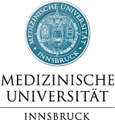Donnerstag, 15.05.2025
Public lecture:Abolition and Decolonial Peace: Undoing the World as We Know It
17:30 - 19:00 Uhr
Agnes-Heller-Haus, Seminar Room 8, Innrain 52a, 6020 Innsbruck
Anmeldung ist nicht erforderlich
Eintritt / Kosten: Eintritt frei
Vortragende/r
Dr. Mahdis Azarmandi, University of Canterbury, Christchurch, New Zealand
Dr. Azarmandi is a scholar specializing in the intersections of Peace & Conflict Studies, race critical & decolonial studies. With a background in Political Science and Peace & Conflict Studies, her work critically examines how global power structures, shaped by colonialism and imperialism, impact peace and conflict dynamics. Her research focuses on the concept of "racial silence in peace studies," exploring how racial divisions intersect with geographic patterns of peace and violence.
Weitere Informationen
Dr. Azarmandi's talk explores abolition as a necessary framework for reimagining peace beyond war, borders, and state-sanctioned violence. The first part critiques traditional approaches to peace, exposing their colonial foundations and entanglement with racial capitalism, which render peace inseparable from state security and militarized control. I take migrant solidarity movements and resistance to policing and militarism as a lens to reframe border abolition and migrant resistance as forms of peace work—ones that do not seek to stabilize the state but instead confront what Nelson Maldonado-Torres calls the ‘endless war of coloniality.’ Abolition, I argue, requires dismantling the racialized infrastructures of security, labor exploitation, and global capitalism that sustain militarized borders and carceral logics. In dialogue with decolonial thought, this talk asks how abolition can open space for a different vision of peace—one rooted in freedom of movement, collective care, and the refusal of racialized violence.
Dr. Azarmandicurrently works at the University of Canterbury, in the Faculty of Education, School of social and Cultural Studies in Education, where their teaching and research bridge the fields of peace studies and social justice in education. Their educational research explores how race, gender, and disability shape educational policies and practices, focusing on the intersectional impacts of these factors. Dr. Azarmandi is committed to decolonizing educational frameworks and promoting social justice through critical analysis of institutional structures. Their interdisciplinary work also addresses the politics of memorialization and the role of colonial monuments in perpetuating historical violence.
More on: https://www.instagram.com/innpeace_online/
Veranstalter
InnPeace - Research Center for Peace and Conflict
Ass.Prof. Dr. Sladjana Lazic
n/a
sladjana.lazic@uibk.ac.at
InnPeace
n/a
innpeace@uibk.ac.at

